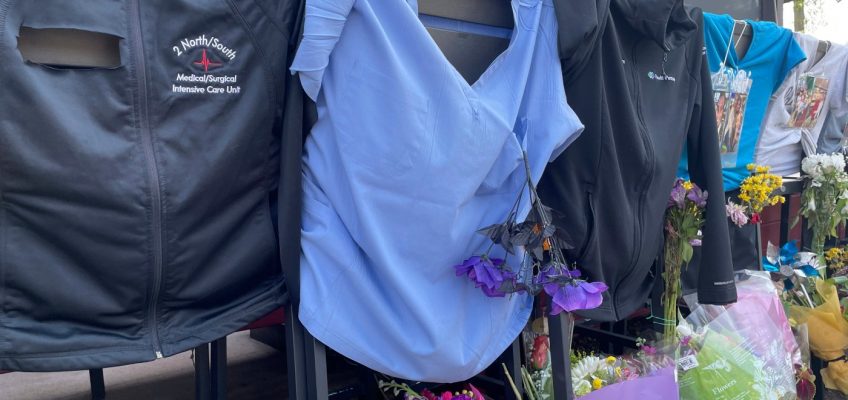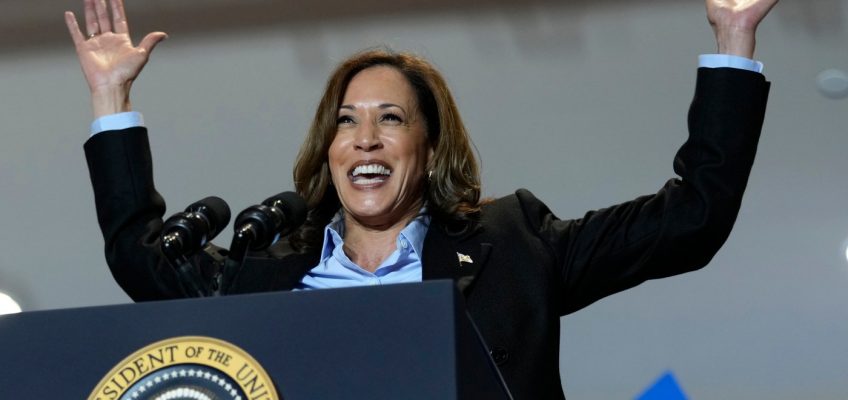A motorist who authorities say had a blood-alcohol level more than four times the legal limit was charged Tuesday in the fatal crash that killed two people and injured nine others on the outdoor patio of a popular St. Louis Park restaurant over the Labor Day weekend.
Hennepin County Attorney Mary Moriarty said that Steven Frane Bailey, 56, of St. Louis Park, was charged with two counts of criminal vehicle homicide for intoxication and negligence and nine counts of criminal vehicle injury. The nine counts will have varying levels of severity, depending on the injuries of each victim, she said at a Minneapolis news conference. In addition, authorities are asking any other victims to come forward.
Surveillance footage captured a man driving a gray BMW sport utility vehicle into the patio of the Park Tavern, 3401 Louisiana Ave. S. The footage shows the man initially entering the restaurant parking lot shortly after 8 p.m. Sunday and attempting to park. He is shown driving past an open parking spot and hitting a parked car when he tried to back into that spot, the criminal complaint said. He then pulled out and accelerated toward the patio, barreling through a metal fence onto the crowded patio. His SUV, which was going an estimated 30 to 45 mph, was stopped by several landscaping boulders.
The two fatally injured victims were a Park Tavern server and a patron. The customer was a staff member at nearby Methodist Hospital, who was gathered on the patio with colleagues after work.
Children were also on the patio at the time of the crash, Moriarty said, noting that some children had left the patio just before the SUV plowed through the fence. Partly because of that, Moriarty said, she has told the court she will possibly seek a greater sentence if Bailey is convicted.
When police arrived, Bailey was still in his SUV. As officers approached him they allegedly heard him on the phone saying, “I hit the gas instead of the brake and went right through a thing” and “I’m probably going to jail.”
According to the criminal complaint, Bailey “appeared calm but was slow to respond to officers’ directions … (his) speech was slurred, and his eyes were bloodshot and watery. As he exited the vehicle, (Bailey) was unsteady on his feet and fell to his knees.”
In addition, he made several “spontaneous” statements such as saying when he was told they were going to perform a field sobriety test he said, “You don’t need to do fields. I know what I did.”
A preliminary breath test showed his blood-alcohol content was 0.325, more than four times the 0.08 legal standard in Minnesota.
When he was booked into Hennepin County jail and told he was being held on criminal vehicular homicide charges, Bailey allegedly said, “You got to be kidding me” and “My life’s pretty much (expletive) now, isn’t it?”
Moriarty asked any other victims to come forward, saying the charges against Bailey will be amended if they discover that more people were injured.
Bailey is being held on $1 million bail. His first court appearance is set for at 1:30 p.m. Wednesday.
Sunday’s tragedy was made even worse, Moriarty said, because it could have been prevented. She noted that there are always numerous options to choose instead of driving intoxicated.
“This did not have to happen,” she said.
Suspect’s DWI record
Minnesota court records show that Bailey has previous drunken driving convictions: a fourth-degree misdemeanor DWI in Waseca County in 2014 and a third-degree gross misdemeanor DWI in Hennepin County in 2015.
Commenting on Bailey’s prior DWI convictions, Moriarty said that for most people, getting just one drunken driving conviction is all they ever get because it’s a wakeup call and they don’t do it again.
The victims
Several GoFundMe accounts have been created to support the victims and their families.
A server at Park Tavern, Kristina Folkerts, was killed, along with patron Gabe Harvey, who was at the restaurant celebrating a Methodist Hospital colleague’s last nursing shift. That nurse is now hospitalized with serious injuries.
Folkerts, 30, had a longtime connection to Park Tavern, the restaurant said. Before Folkerts’ mother died, she was also a server at Park Tavern. She died when Folkerts was 14, and restaurant employees came to the teenager’s aid and would occasionally baby-sit her.
Park Tavern established her GoFundMe page and wrote that “Kristina was a loving mother of 3 young girls and friend to many in the community. We are at a deep loss and thank you for your support during this challenging time.”
Methodist Hospital colleagues also established GoFundMe pages for their injured colleagues and Harvey, 30, who is survived by his partner. The colleagues wrote that Harvey worked as a health unit coordinator at the hospital while attending nursing school.
“There was not a soul that Gabe met that he didn’t leave an impression on. He always had a smile and a kind word for everyone,” they wrote on his GoFundMe page.
Laura Knutsen was celebrating her last shift as a nurse in the Methodist ICU, her colleagues wrote on her GoFundMe page. On Tuesday, she was going to begin training at St. Mary’s University to become a certified registered nurse anesthetist. She was said to have suffered extensive fractures and numerous traumatic injuries and has a long recovery ahead.
A GoFundMe page for nurse Tegan D’Albani said she was celebrating with Knutsen, her best friend. Tegan also suffered extensive fractures and numerous traumatic injuries.
Nurse Theo Larson suffered “multiple skull fractures, facial fractures, and orbital fractures,” according to his GoFundMe page.
The other six victims, including one other Methodist Hospital nurse, suffered lesser injuries, including bruises and abrasions, authorities said.
Park Tavern and Methodist have supported each other for years. The restaurant sent meals to the hospital during the COVID-19 pandemic as medical workers were overwhelmed. And those same workers would frequent the restaurant after shifts.
The St. Louis Park Police Department is asking anyone who was injured or witnessed the crash or has video or photographic evidence of it to contact them at 952-924-2165.
The Associated Press contributed to this report.
Related Articles
At sentencing for random St. Paul sexual assault, woman says she’s grateful she survived, angry it happened
3 teens shot, wounded near Fairgrounds after leaving Minnesota State Fair
2 killed in St. Louis Park restaurant patio crash were server, patron
Five people shot at Red Oak Park in Burnsville on Friday night police say
A teen’s murder, mold in the walls: Unfulfilled promises haunt public housing




